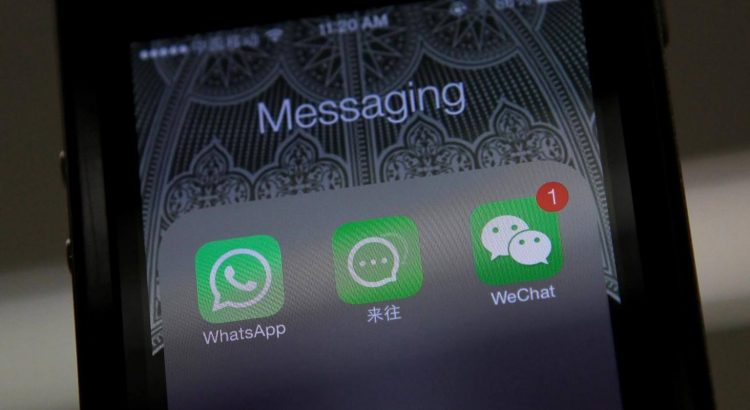China’s most prevalent informing application, WeChat, has dependably had a cozy association with the Chinese government. The application has been financed by the legislature since its creation in 2011, and it’s an acknowledged reality that authorities edit and screen clients. Presently, WeChat is ready to go up against a much more prominent part: an activity is in progress to incorporate WeChat with China’s electronic ID framework.
It might be hard for individuals outside of China to get a handle on exactly how powerful WeChat has progressed toward becoming there. “In every practical sense WeChat is your telephone, and to a far more noteworthy degree in China than anyplace else, your telephone is everything,” composed Ben Thompson, expert and originator of the blog Stratechery. “There is nothing in whatever other nation that is equivalent: not LINE, not WhatsApp, not Facebook.”
Established in 2011 and claimed by Tencent, WeChat has 902 million day by day clients, and around 38 billion messages are sent on the stage each day. A year ago, Tencent added smaller than normal applications to WeChat, making an application store of sorts: inside WeChat, you can play recreations, pay charges, discover nearby home bases, book physical checkups, document police reports, hail taxis, hold video meetings, and access bank administrations. State-run media and government organizations additionally have official WeChat accounts, where they can straightforwardly speak with clients. (Tencent is a substance accomplice of The Skirt in China.) WeChat’s strength is helped by the administration, which has blue-penciled Facebook Dispatcher since 2009, hindered the South Korean-claimed Line application in 2015, and restricted WhatsApp a year ago.
“WeChat ends up noticeably increasingly hard for its clients to quit,” says Yuhua Wang, a previous Shanghai inhabitant who composed a piece called “How WeChat develops into a colossal piece of our life,” for USC’s Annenberg School for Correspondence and News coverage. Abroad Chinese or anybody with family or connections in China have a tendency to download the informing application keeping in mind the end goal to remain in contact since other American applications are prohibited.
WECHAT’S Progress TO AN ELECTRONIC ID Framework IS An “Anticipated Development”
Presently WeChat is ready to wind up noticeably China’s electronic ID framework, state-run Xinhua revealed in December. WeChat will issue virtual ID cards, which people would use in lieu of physical state-issued ID cards. Since WeChat expects clients to enroll with their genuine names per government approach, it’s not an extend to envision that one day, WeChat may completely supplant state IDs. Harvard Business college educator of administration Willy Shih, who co-created a contextual analysis on WeChat, calls the change to an electronic ID framework an “anticipated advancement.”
The experimental run program started toward the finish of December, and it extended the nation over in January. The program was produced by the exploration organization of the Service of Open Security and Tencent’s WeChat group and is upheld by banks and other government offices, including the China Development Bank and the Guangzhou police headquarters’ Nansha Region branch.
To enlist in the program, clients open the scaled down application inside WeChat to apply for a testament. WeChat at that point gives you a computerized high contrast ID card that works for more casual uses like enrolling at web bistros. (In China, you’re required to give ID to sign on.) Clients can likewise apply to move up to a hued ID card. These can be utilized for more formal managing an account exchanges and enlisting a business. Clients can secure their IDs by setting an eight-digit watchword, and Xinhua says that facial acknowledgment innovation will be utilized to confirm candidates face to face before their ID cards are approved keeping in mind the end goal to deflect personality misrepresentation. Furthermore, the application will log a man’s unique mark and the card chip from their relating physical ID.
Xinhua says that the computerized IDs will be a “simple approach to demonstrate that ‘it’s truly me’ anyplace, whenever, without stressing over data fraud.” WeChat clients will, obviously, still need to convey their telephones, and they could in any case be powerless against wholesale fraud in the event that somebody accesses their telephones. Tencent’s WeChat office declined to remark. The Service of Open Security did not instantly react.
China has explored different avenues regarding electronic ID cards on a portable application previously. In 2016, Wuhan’s Open Security Agency in Hubei area cooperated with Alibaba’s portable installment stage Alipay to dispatch a comparable electronic ID framework. In its first year, it was utilized by around 400,000 individuals in Wuhan, and further updates in the end permitted the application to wind up plainly a reasonable ID substitution for huge numbers of the city’s tenants. Alibaba declined to remark however said that the program is never again running.
To a few onlookers, WeChat’s new part raises protection concerns. Notwithstanding WeChat’s nearby ties with the Chinese government, WeChat additionally states in its protection approach that it might hold client information “for whatever length of time that is vital” to “conform to appropriate laws and controls.” In a since-erased web-based social networking post in January, WeChat denied that the application was putting away client visits in light of specialist Li Shufu’s remarks that Tencent President Mama Huateng “must watch all our WeChats consistently.”
TENCENT SCORED A ZERO OUT OF 100 FOR WECHAT’S Absence OF The right to speak freely Assurance AND END-TO-END ENCRYPTION
WeChat has a notoriety for being vigorously checked, in spite of Tencent’s endeavors to persuade clients to “rest guaranteed, regarding client security has dependably been one of WeChat’s most essential standards.” However regardless of whether the organization says something else, on a specialized level, it doesn’t offer clients much assurance against government observation. Tencent scored a zero out of 100 for WeChat’s absence of the right to speak freely insurance and absence of end-to-end encryption in a 2016 Acquittal Global investigate client security. Tencent doesn’t uncover when the administration demands client information and gives no insight about the sort of encryption, assuming any, it utilizes.




